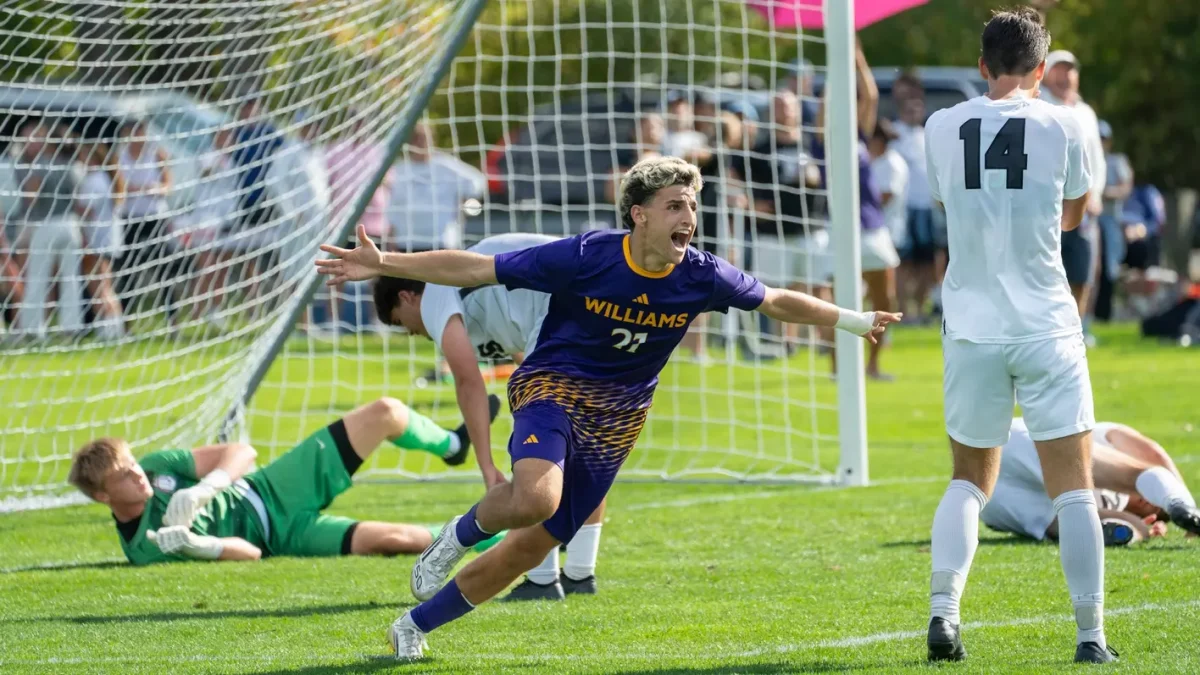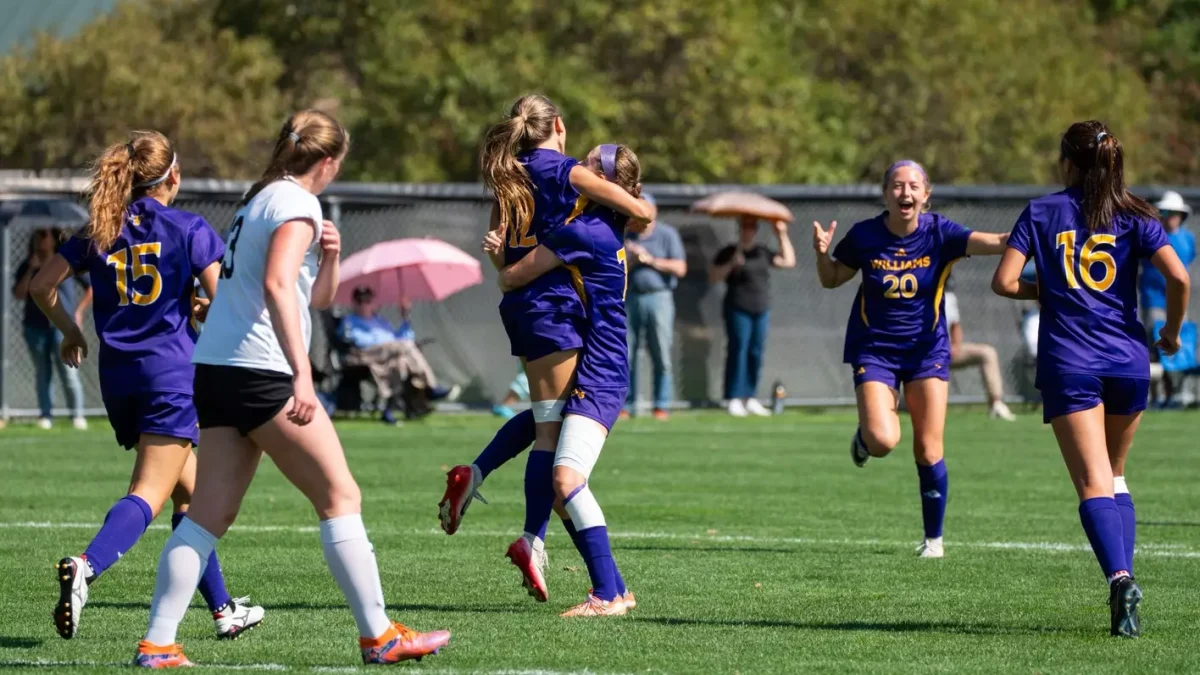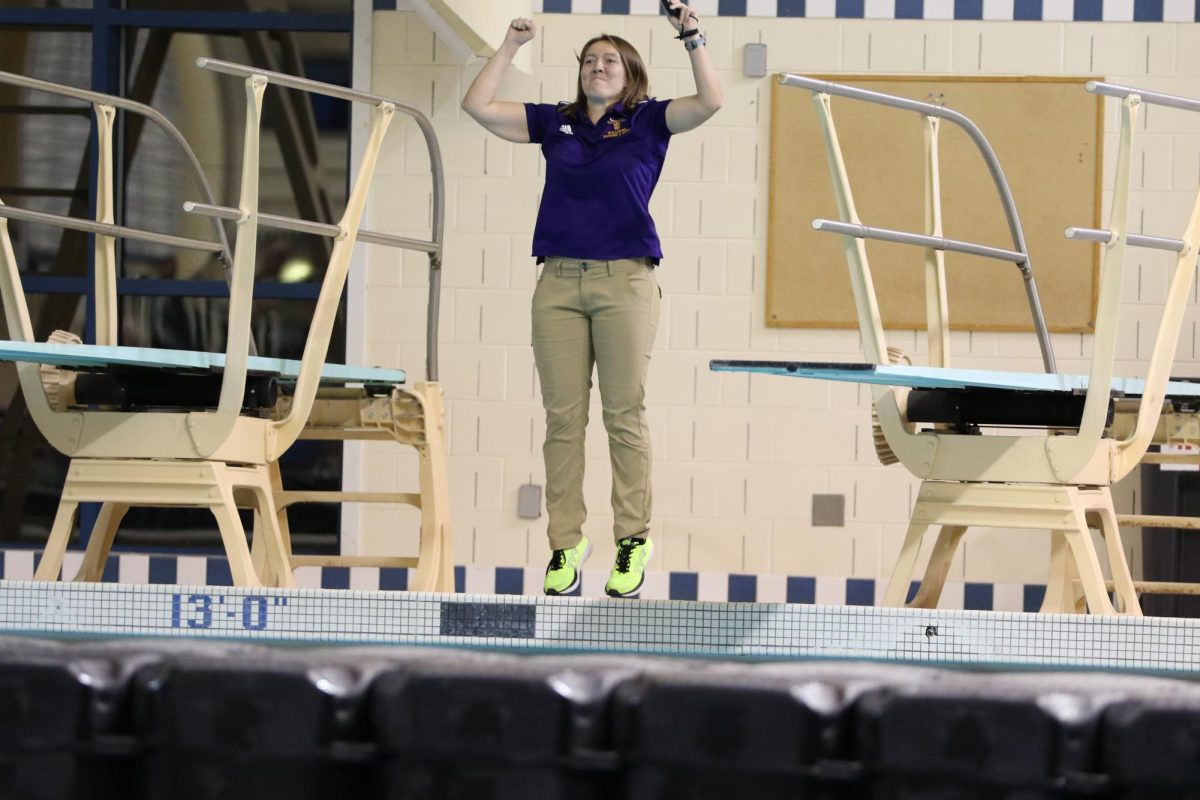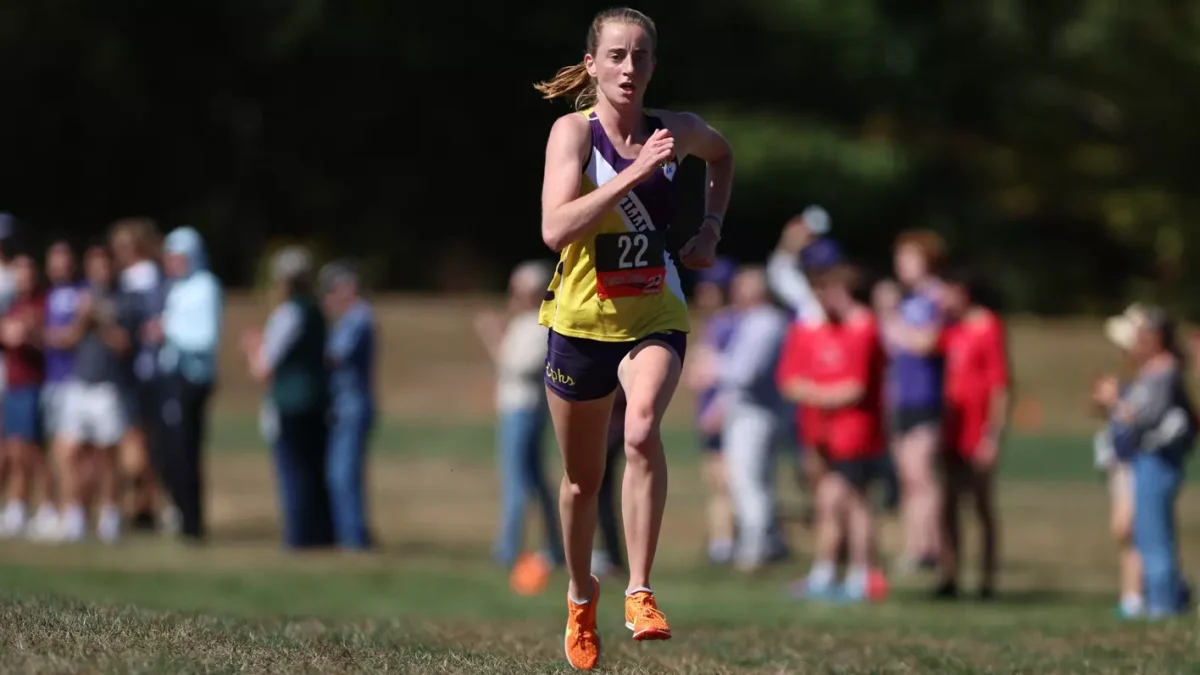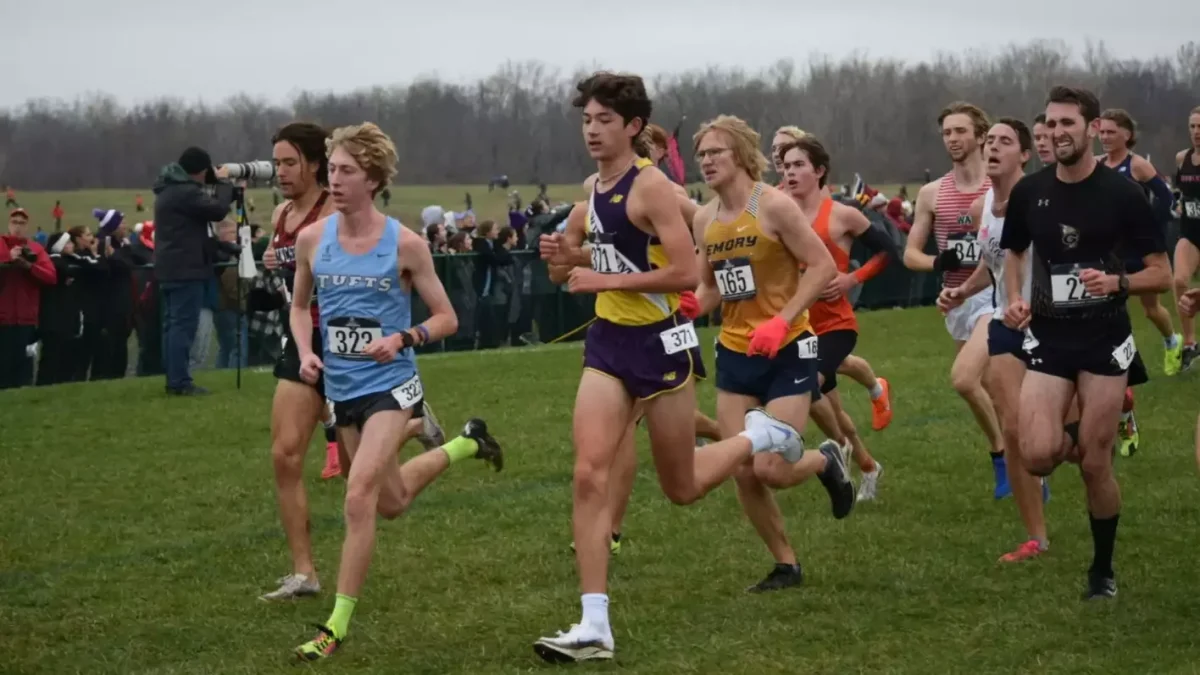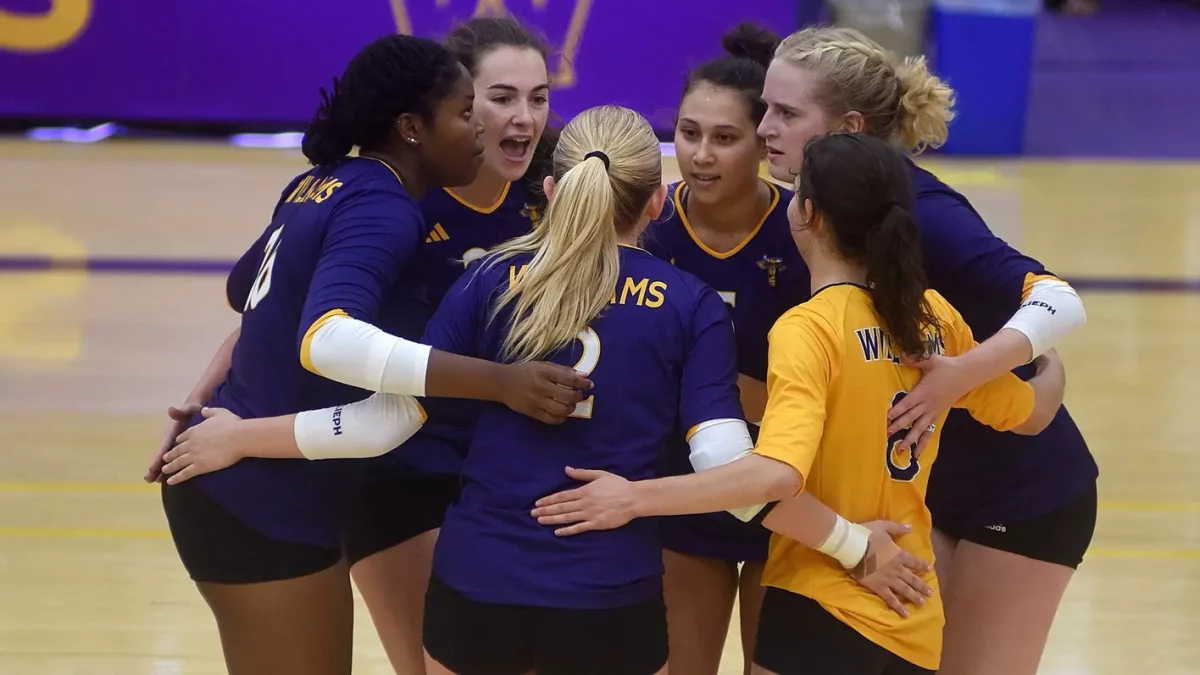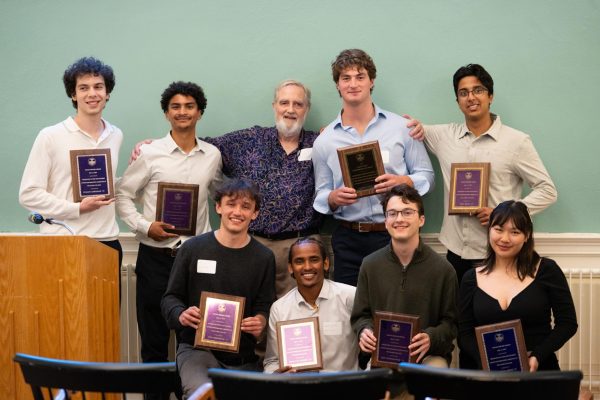
Dick Quinn retired from his position as director of Sports Information on June 30 after 36 years in the role. Just one month before his retirement, Quinn capped off his career by receiving the College’s Ephraim Williams Medal, presented by President Maud S. Mandel.
As the sun set on the evening of Thursday, May 15, crisply-dressed attendants filed into Griffin 3. Among them were students, faculty, parents who had flown across the country, and the Emmy award-winning director of the sports documentary series The Last Dance, Jason Hehir ’98.
They had all come for the 2025 Deford-Pinsky awards, an annual ceremony created and led by Quinn. This year, in addition to the awards for the top sports writers, announcers, and photographers working under him, Quinn himself was recognized. In a surprise twist, Mandel awarded Quinn with the Ephraim Williams Medal at the end of the event, making him the 16th recipient of the accolade. The next day, Quinn received the Lifetime Achievement Award from the National Organization of College Sports Communicators.
Dick Quinn, known by his devoted cadre of student employees at Sports Information as “DQ,” began his role as director in August 1989. “When I first started, I had a landline telephone, a fax machine, and a word processor, and now, it’s on your phone, it’s on your computer, and everything is much faster,” Quinn said.
Even as his role has evolved, Quinn says that students’ effort has always been the core of his operation. “There are different people every year, but their drive and their energy is what makes it all go,” he said.
Speaking at the ceremony, Quinn recalled his initial nerves about relying on students to cover all of the College’s sports matches. But, he concluded, the students have been the best part of his job.
“It’s the kids that make it,” he said. “The number of kids that have gone on to sports jobs … [It’s] unbelievable.”
Hehir, who worked under Quinn during his time at the College, is a prime example.
“I had never had experience calling any sort of game and [my friend Matt Casey ’03] was a football player, and I think he was injured his senior year, so we decided to go to Dick and ask him if we could call the games,” Hehir said.
Hehir said he fondly remembers working as a gameday commentator for Sports Information. “It really was more of a comedy sketch than it was calling the game itself, but it was fun,” he said. “We loved doing that.”
After working for Quinn, both Hehir and Casey catapulted into the sports world. “Matt and I are still really, really close friends now, and we both started at NBC Sports [under Executive Producer and President of Production] Sam Flood,” Hehir said. “We graduated here, and now Matt is a big wig at NBC leading their production on all kinds of things — NBA, college basketball, college football, NASCAR, hockey — he’s done it all.”
After Hehir found success with The Last Dance, which became ESPN’s most-watched documentary, Quinn called him to catch up. In his speech, Hehir recalled that Quinn recommended a student videographer to him. Hehir eventually made her “an offer she couldn’t refuse,” as Quinn put it, asking her to work for his team full-time.
It’s no wonder, then, that Mandel called Quinn the “Don” of the “Williams Sports Information Mafia” in her speech.
Despite his somewhat mythical mafioso persona, however, Quinn is anything but sinister. “Anyone who’s interested in working for Sports Information can, and if they have a passion for it, even better,” Quinn said.
One of these passionate students was Professor of Political Science Justin Crowe ’03.
Crowe began working for Quinn as a Sports Information assistant in the spring of his freshman year at the College. Quinn’s positive demeanor and steadfast commitment to the College’s athletics stood out to Crowe. “There are a few people that I’ve ever met in my life who are as passionate or enthusiastic about what they do, or about their work, as Dick is,” he said. “So, working for Dick was frankly really easy. He’s a really easy guy to like.”
Crowe’s sentiment was shared by many at the Deford-Pinsky Awards. After the ceremony, hordes of adoring parents and students quickly formed a line snaking around the chairs and tables set up in Griffin, all waiting patiently to congratulate Quinn.
Sports Information is currently searching for a new director. In the interim, it is being run by Senior Associae Athletic Director for Recruitment and Sports Supervision David Lindhom, and Assistant Directors of Athletic Communiactions Trevor Wenners and Rachel Davis. According to Lindholm, the team is currently considering what changes and updates to make the platform. “My role is to make sure that [Trevor and Rachel] understand what they’re doing and that we have a good sense of what the Department of Athletic Communications is trying to achieve,” Lindholm said.
While the team’s plan is not fully developed, they intend to honor Quinn’s legacy while revising some parts of the Sports Information model, according to Lindholm.
“One of the things that Dick did really well was encouraging and helping student journalists to find a voice and find a place to publish,” he said. “We still want to do that. We might do it more with feature articles as opposed to the game recaps.”
In his interview, Lindholm pointed to a strong devotion to sports journalism as central to both Quinn’s legacy and the prestige of the College’s athletics program.
“DQ, through his connections and through the work that he did to try to tell these great stories, showcased Williams athletics on a national level, which is a really hard thing to do for a Div. III school in a rural area,” Lindholm said.
As Lindholm spoke, he gestured to an article on the wall. The article, published in Sports Illustrated, was written by Tim Layden ’78 and told the story of the legendary college football player Mike Reily ’64.
Quinn, who is referenced in the article, often spoke of how it represented the pinnacle of sports journalism and the drive he sought to foster in each of his devoted student reporters. Even as Quinn moves on, this testament to his legacy remains.



